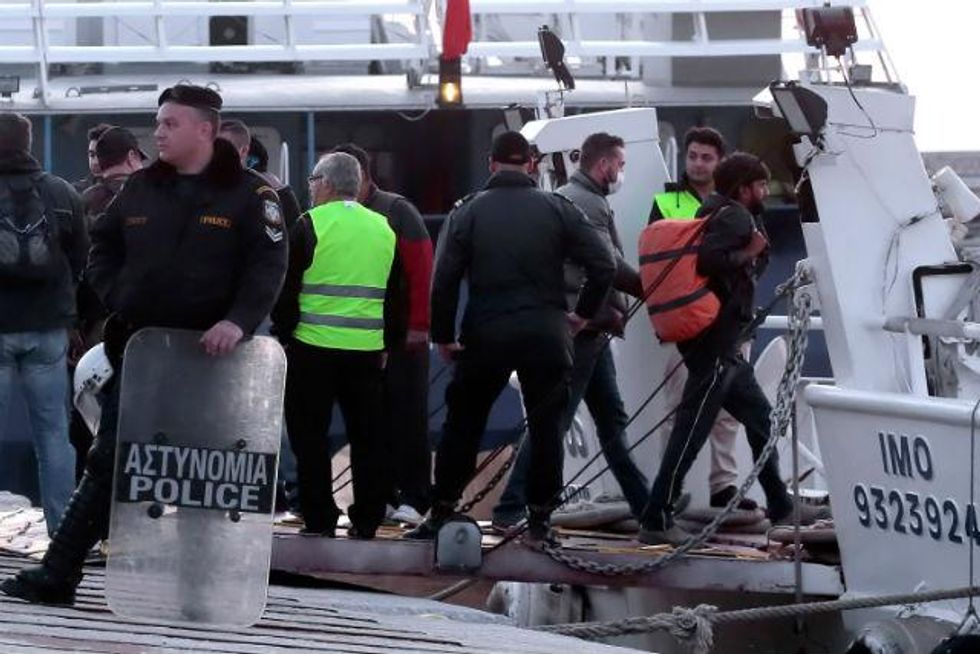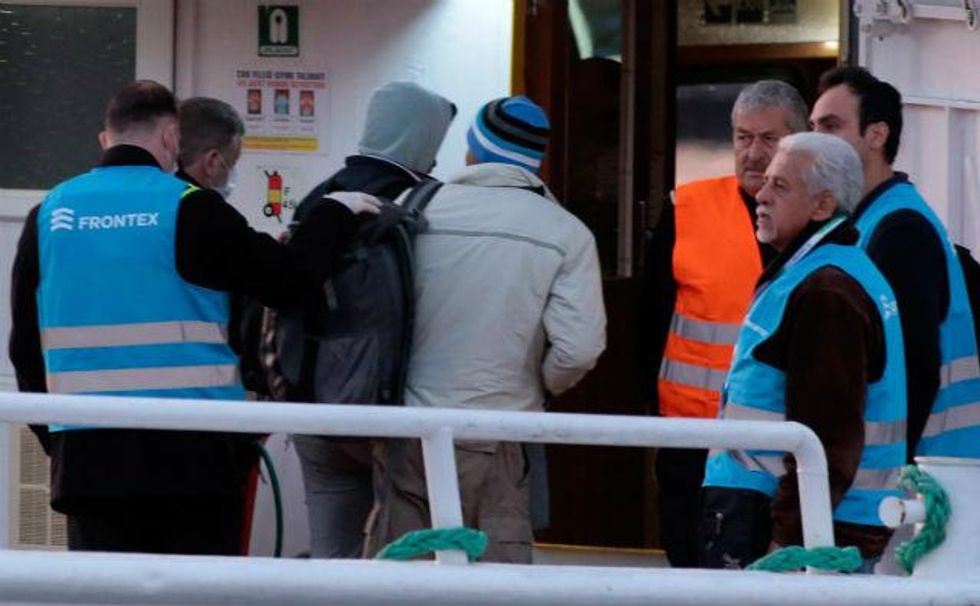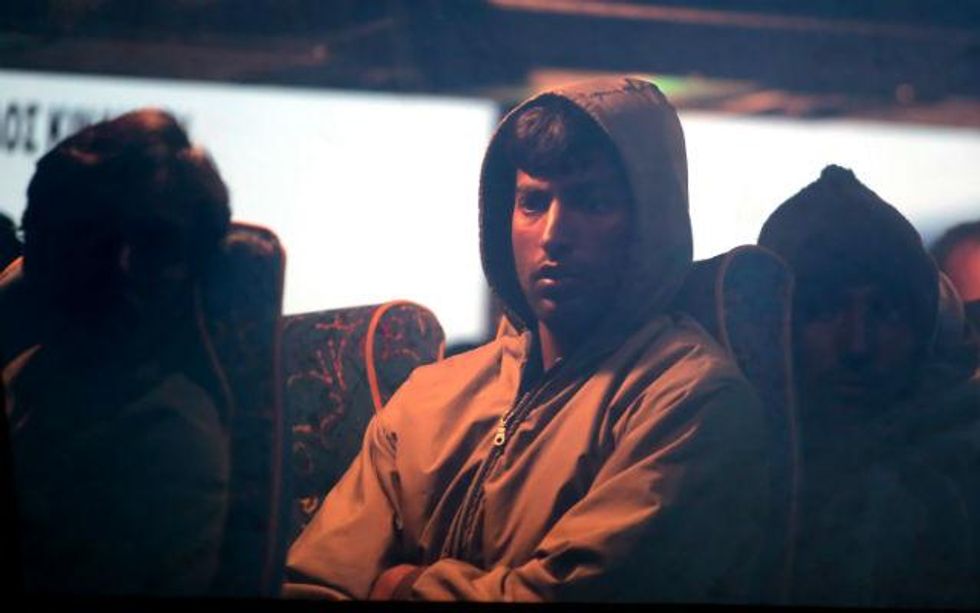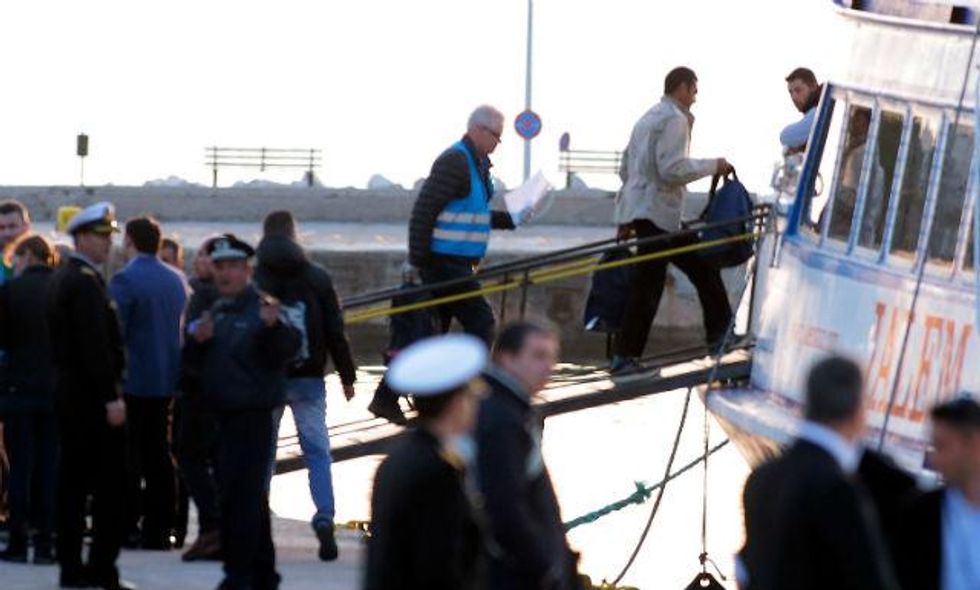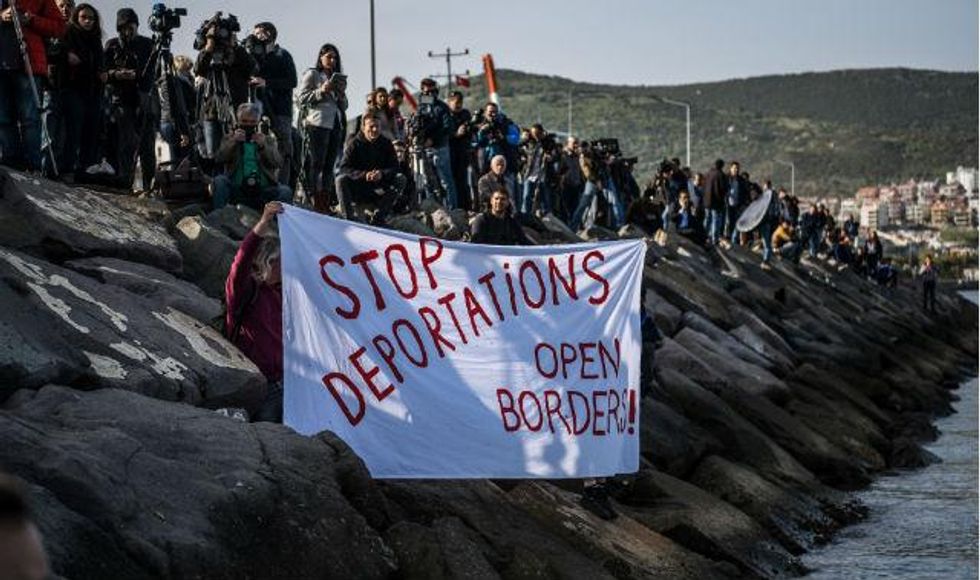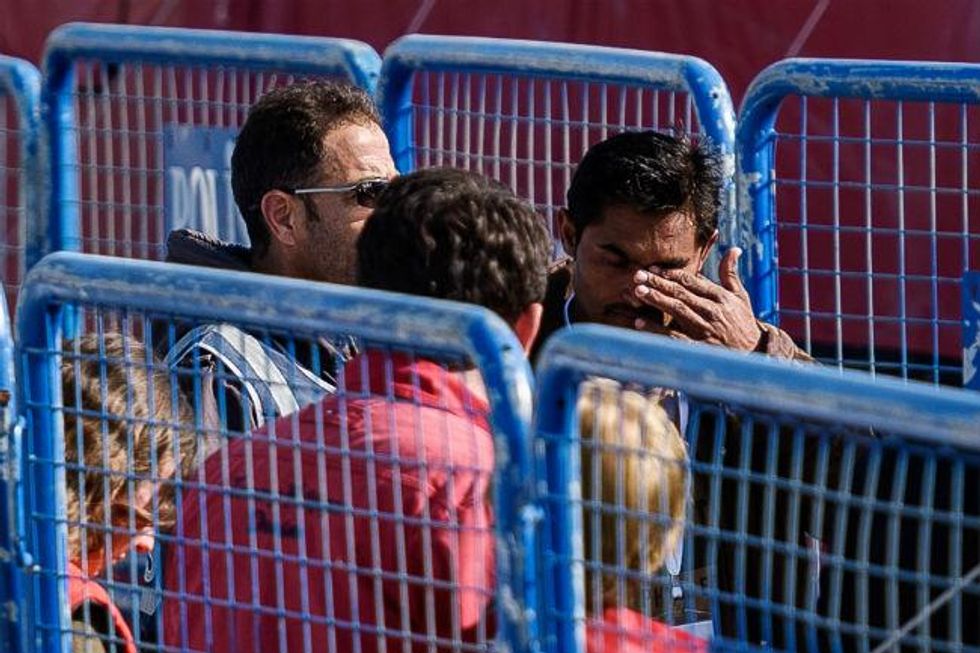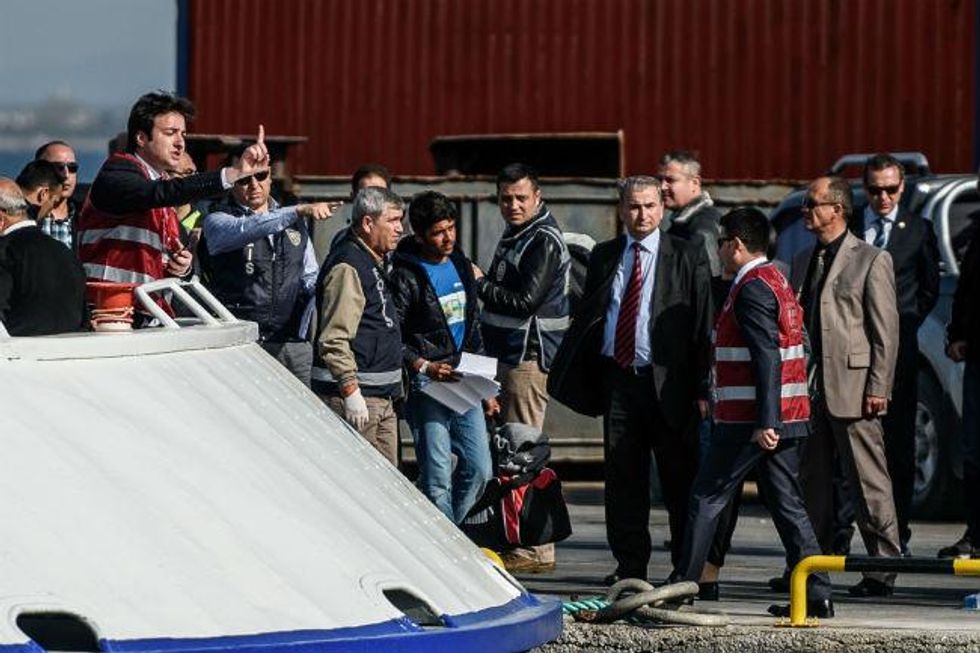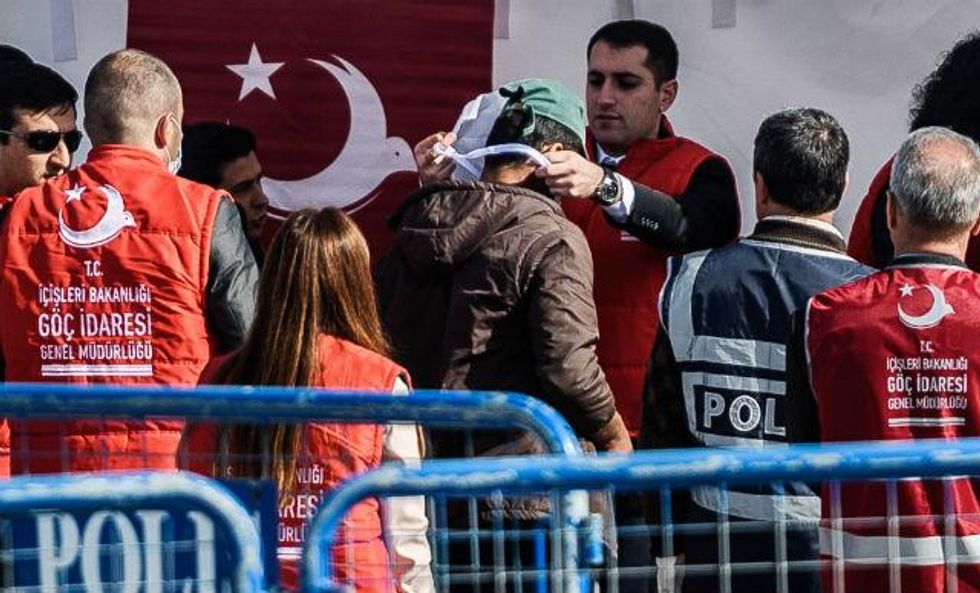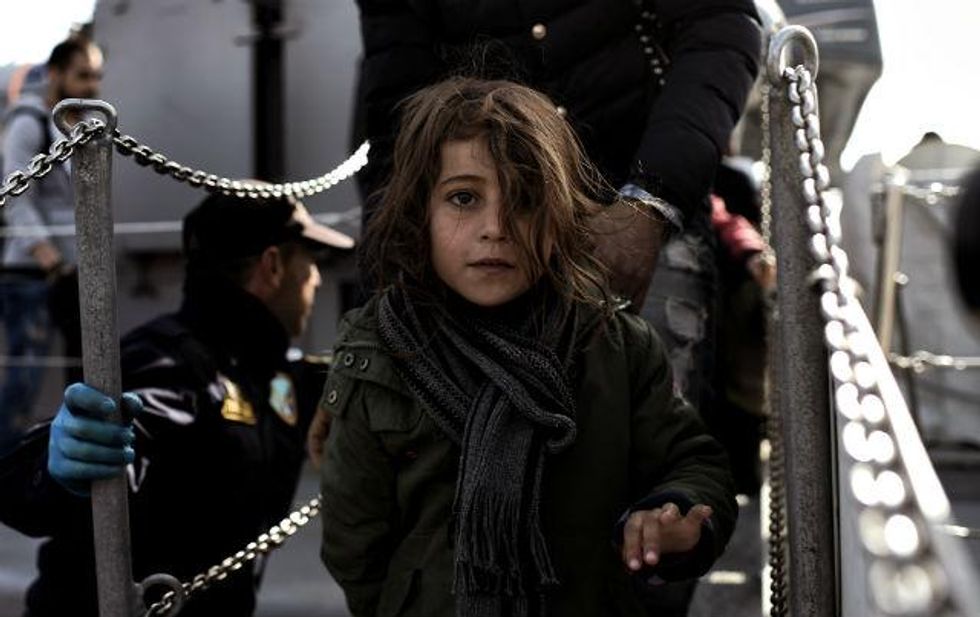News
Narjas Zatat
Apr 04, 2016
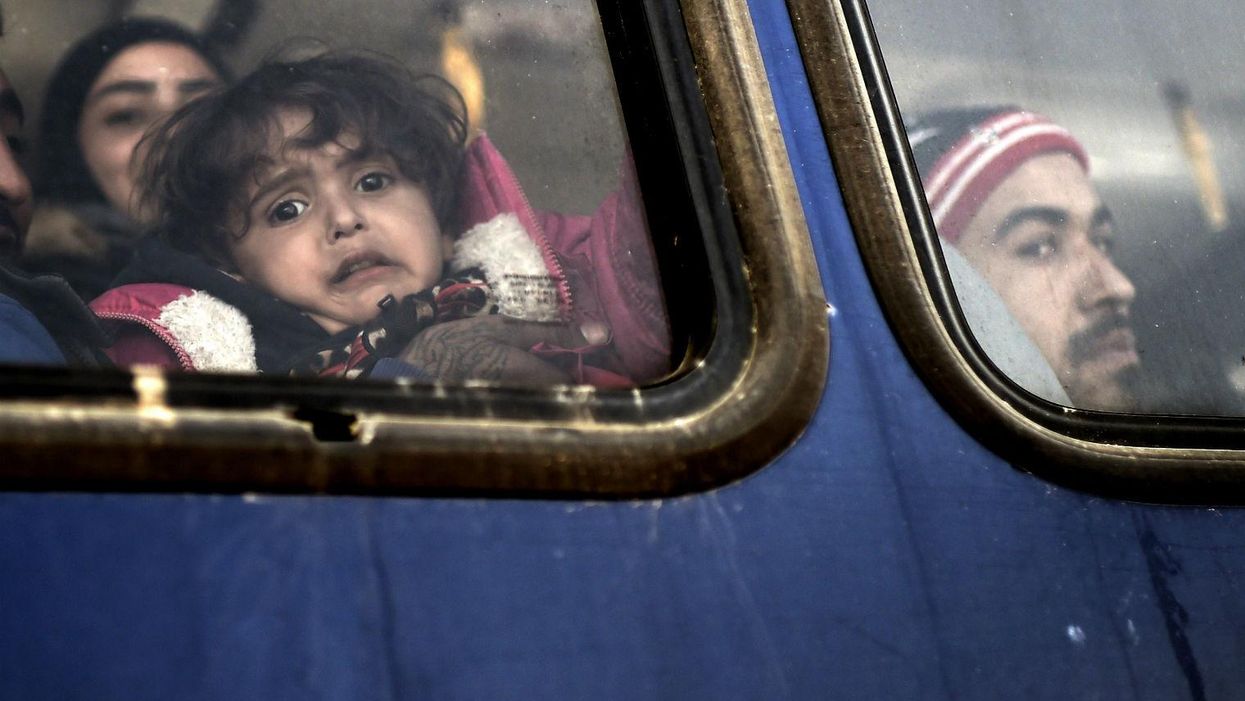
The first two boats carrying 131 people set for deportation have arrived ahead of schedule at the Turkish port of Dikili after leaving the Greek island of Lesbos on Monday.
The deportation comes after an EU deal with Turkey, in which it agreed to take responsibility to deport all refugees who enter Greece illegally after March 20.
In return, Ankara is set to receive $3.3bn (£2.3bn) in aid, as well as permission for Turkish nationals to travel to certain EU countries without a visa.
Police as well as EU border agency officers Frontex began the deportation operation at dawn, hours before schedule.
There were no children in the first two boats and only two Syrians, one of whom had volunteered to be sent back.
The majority of the first group of people were from Pakistan, Bangladesh and Morocco.
What this means, according to some quarters, is that these first deportations are not a real test of the EU-Turkey deal, as it remains to be seen what will happen to the flow of Syrians, Iraqis and Afghan refugees who make up the majority of those who arrive on Greek shores.
The Greek government insists that those being deported today had chosen not to apply for asylum in Greece, but it is unclear if they were given the option to do so.
Anas al-Bakhr, a Syrian engineer who whose arrival was registered as March 20 told the Guardian:
They said the computers were broken that day.
Turkish campaigners are in Dikili protesting that the deportations are inhumane.
There are many aspects of the deal that remain unclear, with the first and foremost question being what will happen to those who are fleeing war zones.
In Dikili, people who registered their arrival before the deportation deal was struck will be sent to the city that registered them, and those who were unregistered will go to a detention centre in the north west of the country.
Approximately 4,000 people have been detained on a number of Greek islands since March 20.
Over one million refugees and migrants arrived in Europe in 2015, and although there are renewed efforts by the EU and member governments to stem the flow of migration, people still keep coming in increasing numbers.
Just hours after the first deportation boat set sail from Lesbos, the Greek coast patrol rescued two small boats carrying 50 refugees, including children and a woman in a wheelchair, Reuters reported.
Firaz, a 31-year-old Syrian Kurd, told Reuters:
We are just going to try our chance. It is for our destiny. We are dead anyway.
More: Calais, Macedonia and Greece: how Europe is treating people who are fleeing war and persecution now
More: This interactive map traces how fences have gone up across Europe during the refugee crisis
Top 100
The Conversation (0)
